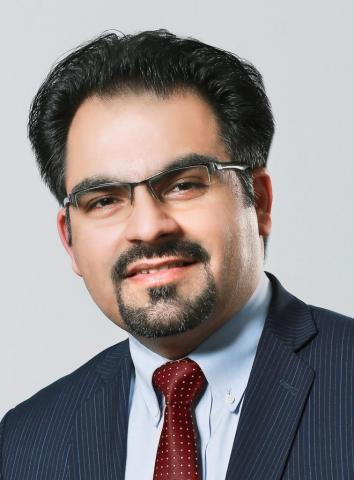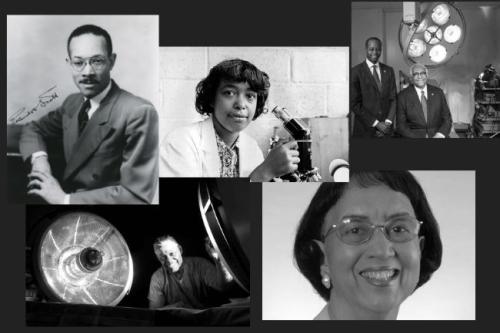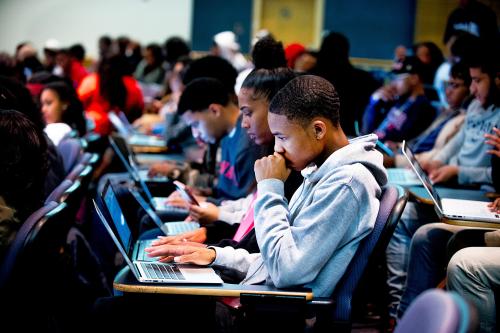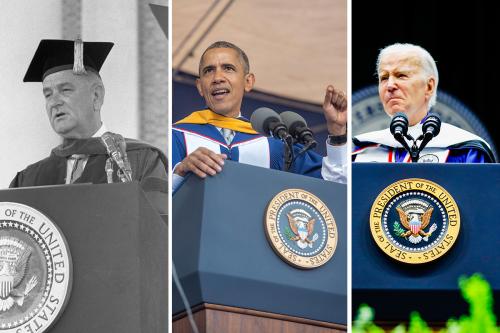WASHINGTON – The Howard University Department of Civil and Environmental Engineering in the College of Engineering and Architecture was awarded a $570,000 grant from the Air Force Office of Scientific Research (AFOSR) Defense University Research Instrumentation Program (DURIP) to support the acquisition of specialized lab equipment critical to advancing a wide range of research activity across the campus. Hessam Yazdani, Ph.D., Howard University civil and environmental engineering assistant professor, will serve as principal investigator.
 DURIP grants are jointly administered by the Army Research Office, Office of Naval Research and Air Force Office of Scientific Research to improve the research capabilities of U.S. higher education institutions in areas important to national defense. The grants provide funds for the acquisition of research equipment and instrumentation. Howard University researchers will use the multi-disciplinary grant to support research into advanced materials, water treatment and environmental chemistry, orthotics and prosthetics, and traumatic brain injury.
DURIP grants are jointly administered by the Army Research Office, Office of Naval Research and Air Force Office of Scientific Research to improve the research capabilities of U.S. higher education institutions in areas important to national defense. The grants provide funds for the acquisition of research equipment and instrumentation. Howard University researchers will use the multi-disciplinary grant to support research into advanced materials, water treatment and environmental chemistry, orthotics and prosthetics, and traumatic brain injury.
“DURIP grants are highly competitive, and the program is a true enabler of performing pioneering defense research and supports the training of the next generation of STEM professionals and scientists,” Yazdani said. “We will use this grant to contribute to AFOSR and [Department of Defense] research priorities and continue attracting and retaining highly talented researchers as a leading research institution in science and engineering.”
The co-principal investigators for the DURIP award are civil and environmental engineering assistant professor Jeseth Delgado-Vela, Ph.D.; civil and environmental engineering professor Claudia Marin, Ph.D., P.E.; mechanical engineering professor Mohsen Mosleh, Ph.D.; physics professor Prabhakar Misra, Ph.D.; and radiology and biochemistry professor Paul Wang, Ph.D.
With the grant, Howard University will acquire a laser scanning confocal microscope, a scanning electron microscope, a thermal conductivity meter and a tensile testing machine. Yazdani said the acquisition of advanced specialized lab equipment made possible by the DURIP grant will enhance the inter- and transdisciplinary, education-intense research collaborations between Howard University researchers.
“This equipment will support significant research at Howard University in developing advanced materials for civil, mechanical and biomedical engineering applications such as wear-resistant homocomposites for manufacturing hip and knee replacements, quantifying the efficacy of the olfactory transfer of drugs into the brain to bypass the blood-brain barrier, and many other cutting-edge research areas,” Yazdani said.
Yazdani said Howard University graduate students will greatly benefit from the new lab equipment as they pursue innovative projects. Undergraduate research capacity across STEM disciplines at the university will also be enhanced as these students are trained to administer the equipment.
“We are thrilled that Dr. Yazdani and his interdisciplinary team will acquire this state-of-the-art equipment to further our capabilities in advanced materials research,” said Kimberly L. Jones, Ph.D., associate dean for research and graduate studies and chair of the Department of Civil and Environmental Engineering. “This team will be in a very strong position to successfully compete for funding in areas of national importance and to expose students to these excellent facilities right here on our campus.”
About Howard University
Founded in 1867, Howard University is a private, research university that is comprised of 13 schools and colleges. Students pursue studies in more than 120 areas leading to undergraduate, graduate and professional degrees. The University operates with a commitment to Excellence in Truth and Service and has produced one Schwarzman Scholar, three Marshall Scholars, four Rhodes Scholars, 11 Truman Scholars, 25 Pickering Fellows and more than 165 Fulbright Scholars. Howard also produces more on-campus African-American Ph.D. recipients than any other university in the United States. For more information on Howard University, visit www.howard.edu
Media Contact: Sholnn Freeman, sholnn.freeman@howard.edu




